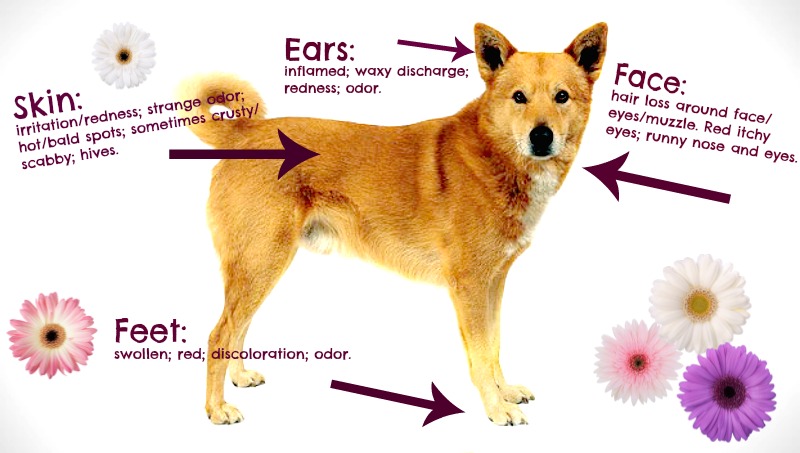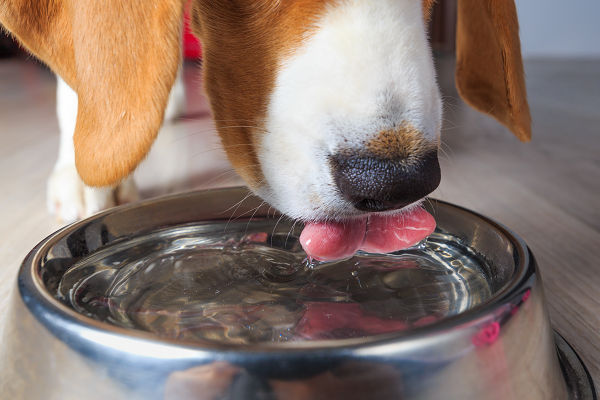Free Facts For Deciding On Collagen For Dogs
Free Facts For Deciding On Collagen For Dogs
Blog Article
How Can Joint Health Be Improved In Cats And Dogs Using Glucosamine?
Glucosamine, Chondroitin and other supplements are utilized to improve and maintain the joint health of dogs and cats. These are their functions and benefits.
Glucosamine
Cartilage Repair and Formation:
Glucosamine functions as a natural component in healthy cartilage. This chemical is present in the fluid surrounding the joints. It is a naturally occurring compound which helps repair cartilage and develop new cartilage.
Benefits: It assists to decrease the amount of degrading cartilage in joints. This may provide relief from joint pain as well as improve joint function.
Anti-inflammatory Effects:
Effect: Glucosamine could have anti-inflammatory properties that reduce inflammation in joints.
Benefits: Reduced pain and swelling can be experienced in the joints. Pets will appreciate it easier to move around.
Chondroitin
Breakdown of Cartilage:
Function: Chondroitin is another component of cartilage. It inhibits enzymes that cause cartilage to break into pieces.
Benefits Chondroitin helps keep joints healthy by protecting cartilage.
Joint Lubrication:
The function: Chondroitin helps to attract and keep water in the cartilage. This is essential for maintaining the flexibility and elasticity of joints.
Benefits: It improves joint lubrication, making movement easier and less painful for pets.
Combined Benefits
Synergistic Effect: When utilized in combination, Glucosamine and Chondroitin can be synergistic, enhancing each other's benefits. This combination is usually better at reducing joint pain, and improving mobility.
The regular usage of these products could help prevent and treat joint issues such as osteoarthritis in cats and dogs. They are helpful for pets with existing joint conditions or older animals.
Use and considerations
Dosage and administration: The correct dosage will depend on your pet's size, weight and other requirements. It is essential to follow the recommendations of the veterinarian as well as the dosage guidelines on the product label.
Although it is safe for pets, some animals may experience mild gastrointestinal upset. It is best to be aware of the reactions of your pet, especially when they are first introduced to the supplement.
Conclusion
Glucosamine and Chondroitin can assist in maintaining the health of joints in cats and dogs. They assist in the repair of cartilage and maintenance, decrease inflammation, increase joint lubrication, and reduce the development of joint problems and improve the quality of life for pets. Have a look at the most popular collagen for dogs for blog recommendations including pet urinary tract supplements, pet supplements for pets with weak bones, pet omega-3 supplements, premium quality pet supplements, pet supplements australia, dog supplements, pet supplements for pets with joint pain, pet digestive health and more.
How Does Omega-3 Fatty Acids Aid Animals And Cats With Kidney Failure?
Omega-3 fatty acids, specifically EPA (eicosapentaenoic) and DHA(docosahexaenoic) are able to assist in preventing kidney failure in cats and dogs. They provide numerous benefits to improve overall health and kidney function. The way they can help treat kidney disease is as the following:
Anti-inflammatory Properties
Reduce Inflammation
Function The fatty acids help decrease inflammation by reducing proinflammatory cells (cytokines) and eicosanoids.
Benefits: Omega-3s lower inflammation in the kidneys and may improve kidney function.
Blood Pressure Regulation
Lowering blood pressure:
Function Omega-3 fatty acids to regulate blood pressure by enhancing blood flow and reducing inflammation.
Benefits: Lowering blood pressure reduces the pressure on kidneys, and helps to protect remaining kidney function.
Proteinuria Reduction
Reducing Proteinuria:
Function: Omega-3s may help reduce leakage of urine protein (proteinuria) that is a common problem with kidney disease.
Benefits: Reduce the amount of proteinuria in order to stop further kidney damage.
Preservation of Glomerular Filtration Rate (GFR)
Supporting Kidney filtering
Function: Omega-3 fatty acids help maintain the vigor of glomerular filtering this is the process that helps kidneys purify blood.
Benefits The ability to maintain a high GFR can slow the rate of progression and help preserve kidney function.
Appetite Stimulation, Nutritional Support
Enhancing Appetite
Function: Omega-3s can help improve appetite and overall nutritional intake of pets suffering from kidney problems, which is why they often have a lower appetite.
Benefits: A higher nutrition intake can boost overall health, and help kidney-related pets keep their weight in check and maintain muscle mass.
Cardiovascular Health
Aiding Heart Health
Function Omega-3s have a positive effect on cardiovascular health. They can reduce inflammation, reduce blood pressure and enhance lipid profiles.
Benefits: A better cardiovascular health can help reduce the risk of complications such as heart disease and kidney failure as well as improve overall health and well-being.
Antioxidant Effects
Reducing Oxidative Stress:
Function They are antioxidants that help reduce the damage caused by oxidative events to kidneys.
Benefits: Lower oxidative stress protects kidney cells against damage, resulting in improved kidney function.
The Use of the Internet
Dosage and Administration: The quantity of omega-3 fatty acid to administer depends on the size, weight, and overall health of your pet. The veterinarian's recommendation or the product's label is crucial. Omega-3s are commonly found in supplements to fish oil formulated specifically for pet use.
Formulations: Omega-3 supplements for dogs are available in a variety of forms, such as capsules, liquid oils and chews. It is important to select an item that is high-quality to ensure its safety and effectiveness.
Omega-3 supplements generally are pet-safe, however they could cause stomach upsets. It is recommended to begin with a lower dose and gradually increase the dosage. This will help reduce any side effects. It is vital to monitor any adverse reactions like diarrhea or vomiting is vital.
Also, you can read our conclusion.
Omega-3 fatty acids can provide important benefits when it comes to managing kidney disease in dogs and cats. Their anti-inflammatory, blood pressure-lowering, proteinuria-reducing, and appetite-stimulating properties help support kidney function and overall health. Omega-3 supplements can help slow the progression of kidney disease and improve the quality of life for pets who have kidney failure. View the recommended dog coughing info for more recommendations including pet anxiety supplements, pet eyebright supplements, pet supplements for pets with fear of anesthesia, pet supplements for pets with fear of confinement, pet ashwagandha supplements, pet supplements for pets with fear of illness, pet milk thistle supplements, pet supplements for pets with travel anxiety and more.
Apple Cider Vinegar Is Effective In Treating Yeast Infections In Cats As Well As Dogs.
ACV is utilized as a remedy for yeast infections in dogs and cats. ACV's acidic nature can cause side effects and is not recommended without supervision from a vet. ACV may help treat yeast infections.
Antifungal Properties
Acidic Environment
Function: ACV is acidic, with a pH typically between 2.5 and 3. This acidic pH may hinder yeast growth.
Benefits Utilizing ACV diluted ACV topically or incorporating it into your bath water of your pet can help to lessen the overgrowth of yeast on the skin and the ears.
Skin pH Regulation
Balancing Skin pH:
ACV helps to regulate the pH of skin, encouraging an endocrine-friendly barrier and preventing the growth of yeast.
Benefits: Keeping an appropriate pH balance in your skin will help prevent yeast infections and help ensure healthy skin.
Anti-inflammatory action
Reduce inflammation:
Function: ACV has mild anti-inflammatory properties.
The benefits of lessening inflammation It can help reduce the symptoms of yeast infections, such as itching, redness and discomfort.
Support for Digestive Health
Internal Use
ACV improves digestion when consumed in small quantities.
Benefits Helping to support the overall immune system health, balance of microbial activity and gut health may reduce yeast growth.
Use and Considerations
Topical application: Apply ACV in diluted form with water (typically, 1 part ACV for 1-2 parts water) in a spray or rinse for the affected areas of the skin or ears. Avoid applying ACV directly to open skin wounds or other sensitive regions.
Internal Use - If considering using ACV for internal use, talk to your veterinarian first. ACV should be diluted to a high degree (e.g. 1 teaspoon to 1 tablespoon per cup of water) and given in small quantities to prevent potential gastrointestinal upset or irritation.
Monitor for any signs of irritation or allergic reactions, when applying ACV on the skin. Discontinue ACV use if negative reactions do occur.
Consultation with a veterinarian Consultation with a vet prior to making use of ACV for yeast infections in pets. They will be able to provide you with advice on the proper dosage and application method for your pet and also the potential dangers.
We also have a conclusion.
While apple cider is helpful in the treatment of yeast infections in dogs and cats it should still be administered with caution and under veterinary supervision. ACV is acidic, and could create an environment which does not promote yeast growth. It also has moderate anti-inflammatory effects. To avoid irritation and adverse reactions, it's important to take care when using ACV. ACV is safe and efficient when administered under the supervision of a veterinarian as part of a complete treatment program for yeast infection in pets. Take a look at the top rated pet wellbeing australia recommendations for website advice including pet digestive supplements, pet nutrition, pet supplements for pets with dull coat, pet joint care supplements, pet digestive supplements, pet hemp supplements, pet reproductive supplements, pet yucca supplements and more.